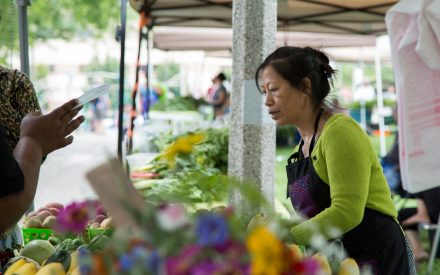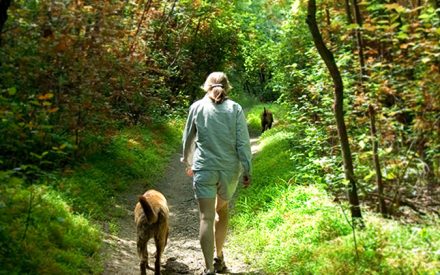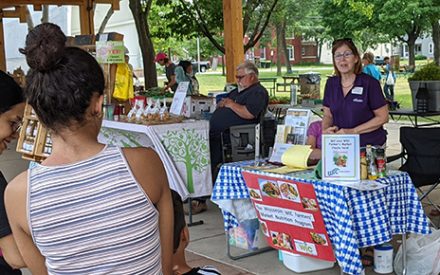During 2020 and 2021, there were over 48 million cases of COVID-19 in the U.S. and almost 780,000 deaths nationally, with Black, Indigenous, and people of color disproportionately impacted. In Wisconsin, over 9,000 people died from COVID-19 in the same time frame. Compared to white Wisconsin residents, Hispanic or Latinx residents have 1.5 times greater case rates. The COVID-19 vaccines are highly effective at reducing severe illness and death from COVID-19, yet many people remain hesitant to get vaccinated, especially in rural areas. As of December 2021, only 56.7% of Wisconsinites were fully vaccinated. Hispanic and Latinx Wisconsin residents are 20% less likely to be vaccinated compared to white residents. Rural residents also continue to lag in vaccination behind urban residents.
As COVID-19 vaccine distribution began in early 2021, Extension utilized its position as trusted messengers within communities to share research and information about COVID-19 vaccines to address vaccine hesitancy. Extension hosted a series of webinars featuring UW–Madison public health experts who shared information about vaccine basics, vaccine development and distribution, and communication strategies. The goal was to equip Extension educators and community partners with the knowledge and resources to communicate effectively about the vaccines. Additionally, Extension facilitated a COVID-19 Vaccine Response Workgroup to develop a strategic plan for Extension COVID-19 vaccine outreach and engagement. This workgroup identified priority audiences for outreach and education, which included rural farmers, farm owners, farm families, and migrant, seasonal, and/or immigrant farmworkers. Through engagement with the workgroup, meetings with community partners, and participation in external committees, Extension created a variety of outreach tools and resources to support local vaccine outreach activities, including a website, newsletters, flyers, press releases, virtual town halls, and a digital ad campaign.
Specific outreach included:
- A virtual town hall for youth ages 12 and older and their parents, caregivers, and families. Pediatrician and public health experts joined to answer questions about the vaccines for youth. This town hall offered simultaneous Spanish language interpretation.
- A direct mailing initiative to agricultural partners and newspaper advertisements to reach agricultural audiences in northwestern Wisconsin.
- A social advertising campaign on Facebook directed to adults 18 years and older in 16 northwestern Wisconsin counties. Three different message frames were used to specifically resonate with a rural audience: doctors as trusted messengers, testimonials from rural agriculture professionals, and frequently asked questions that addressed issues of concern.
- Local outreach and engagement efforts such as collaborating with partners to hold vaccination pop-up clinics and sharing print and digital resources about the vaccine through direct mailing, emails, information included in newsletters, social media posts, and during educational events.
- Extension colleagues also played an important role in making connections between partners in their community to facilitate vaccine outreach locally. Extension is viewed as a trusted source of evidence-based information within communities, and efforts to share accurate information about the COVID-19 vaccine are an important part of statewide immunization outreach and education.
Extension provided COVID-19 vaccine information to more than 27,660 Wisconsinites through outreach and education activities.
Providing evidence-based information about COVID-19 vaccines is a focus of Extension’s Health & Well-Being Institute. Learn more by visiting
fyi.extension.wisc.edu/covid19.
Download Article

 Positive Coping Strategies to Reduce Stress
Positive Coping Strategies to Reduce Stress Strengthening Food Security During COVID-19
Strengthening Food Security During COVID-19 Supporting Mental Health
Supporting Mental Health Increasing Healthy Food Access, Food Security
Increasing Healthy Food Access, Food Security


